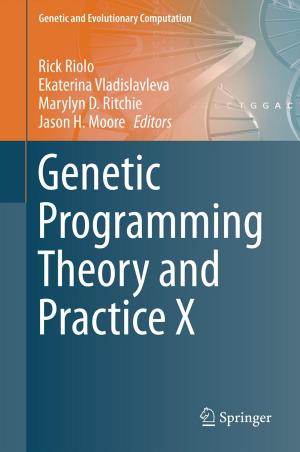Advances in Rapid Sex-Steroid Action
New Challenges and New Chances in Breast and Prostate Cancers
Nonfiction, Health & Well Being, Medical, Specialties, Internal Medicine, Endocrinology & Metabolism, Oncology| Author: | ISBN: | 9781461417644 | |
| Publisher: | Springer New York | Publication: | December 15, 2011 |
| Imprint: | Springer | Language: | English |
| Author: | |
| ISBN: | 9781461417644 |
| Publisher: | Springer New York |
| Publication: | December 15, 2011 |
| Imprint: | Springer |
| Language: | English |
Breast and prostate cancers are both hormone-dependent, at least in some stages of their progression. Hormonal manipulation represents an important therapeutic approach. Although most of breast and prostate cancers initially respond to hormone therapy, most tumors reinitiate to growth. Finally, hormone-resistant and metastatic breast and prostate cancers may develop. Thus, the challenge is the dissection of mechanisms by which steroid receptor signaling pathways continue to influence cell growth and invasiveness. Compelling evidence indicates that steroid hormones elicit non-genomic responses in extra-nuclear compartment of target cells. In this cellular location, steroid-coupled receptors rapidly recruit signaling effectors or scaffold proteins and activate multiple pathways leading to proliferation, survival, migration and invasiveness. The immediate challenge is the dissection of key events regulating the steroid response of target tissues to prevent progression and improve treatment of breast and prostate cancers.
Breast and prostate cancers are both hormone-dependent, at least in some stages of their progression. Hormonal manipulation represents an important therapeutic approach. Although most of breast and prostate cancers initially respond to hormone therapy, most tumors reinitiate to growth. Finally, hormone-resistant and metastatic breast and prostate cancers may develop. Thus, the challenge is the dissection of mechanisms by which steroid receptor signaling pathways continue to influence cell growth and invasiveness. Compelling evidence indicates that steroid hormones elicit non-genomic responses in extra-nuclear compartment of target cells. In this cellular location, steroid-coupled receptors rapidly recruit signaling effectors or scaffold proteins and activate multiple pathways leading to proliferation, survival, migration and invasiveness. The immediate challenge is the dissection of key events regulating the steroid response of target tissues to prevent progression and improve treatment of breast and prostate cancers.















